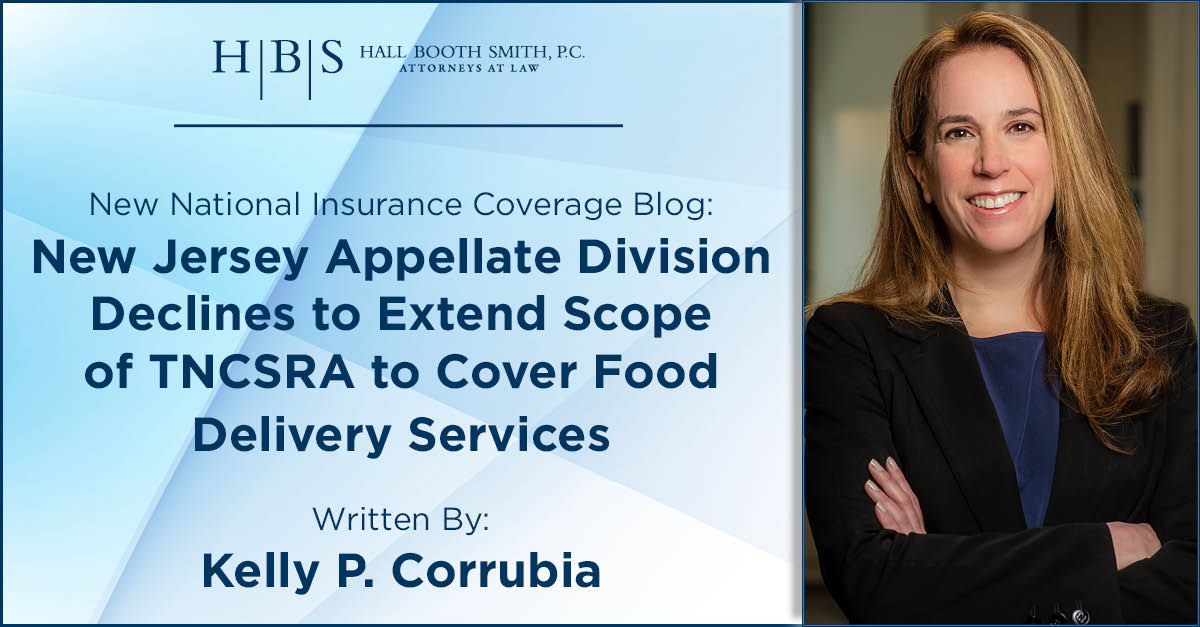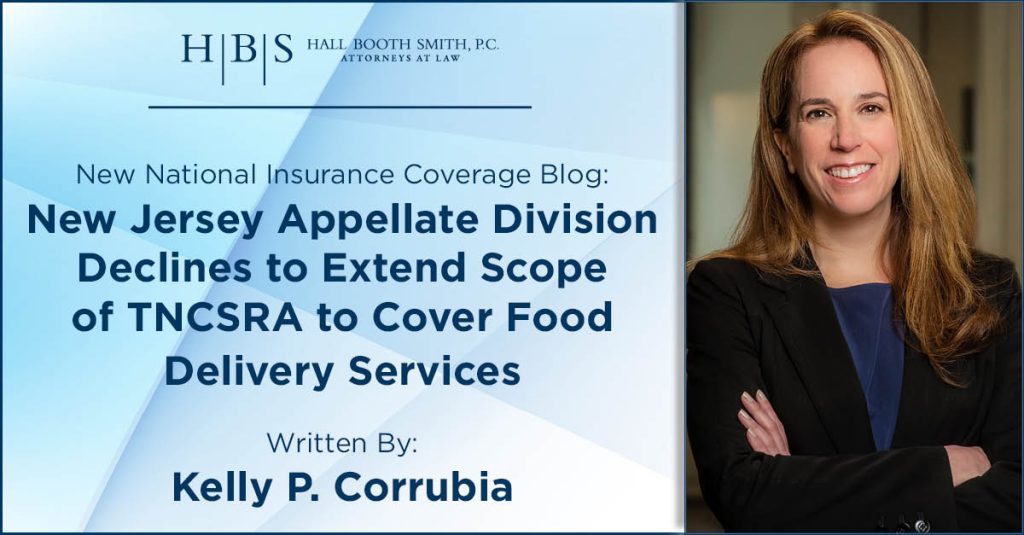
New Jersey Appellate Division Declines to Extend Scope of TNCSRA to Cover Food Delivery Services

Written by: Kelly P. Corrubia, Esq.
A panel of the New Jersey Appellate Division in a case of first impression held that the Transportation Network Safety and Regulatory Act (TNCSRA)1 applies only to transportation network companies that use a digital network to connect a rider to a prearranged ride, such as Uber or Lyft, and that the scope does not include app-based food delivery services, such as Uber Eats.
Background
In Scott C. Malzberg vs. Caren L. Josey, et al., decided on , plaintiff sought to compel James River Insurance Company to provide Underinsured Motorist (UIM) coverage to him pursuant to the terms of the TNCSRA. Plaintiff was involved in a motor vehicle accident while using his own personal motorcycle to deliver food through the Uber Eats app. Plaintiff was enrolled with Portier, LLC, and utilized the Uber Eats phone application to fulfill customer orders and deliver food from restaurants to consumers.
Upon enrollment, plaintiff signed an agreement with Portier that acknowledged his own policy may not afford certain coverage, such as UIM benefits, and that Portier and its affiliates are not required to provide plaintiff with any specific coverage for losses incurred while utilizing the application.
Plaintiff was in the process of delivering food for Uber Eats when he was involved in an accident, and sustained injuries requiring significant treatment. His injuries exceeded the liability limits of the tortfeasor’s coverage, and plaintiff thereafter sought UIM benefits from James River Insurance, who provided a business auto insurance policy to Portier. That policy did not provide UIM coverage.
Decision
On appeal, the Court extensively reviewed the definitions set forth in the TNCSRA and emphasized that nothing in the Act, including its definitions and mandatory insurance coverage, refers to the delivery of food. The definitions in the Act are limited to ride share apps, which pertain only to the transportation of people.
The Court found the Legislature’s omission of any reference in the definitions to vehicles that transport goods rather than people supported a finding that the Legislature was concerned only with vehicles while being used to transport persons, and that a plain language interpretation required dismissal of plaintiff’s Complaint seeking UIM coverage from James River Insurance. Further, the Court noted that nothing in the Legislative history of the Act supported expanding its scope to include delivery of goods.
While the TNCSRA provides a statutory minimum requirement for UIM coverage of at least $1.5 million, that provision, when interpreted by its plain language, applies only to a prearranged ride for a person. The Court refused to expand the definition to incorporate the delivery of goods, such as provided with Uber Eats.
The decision by the New Jersey panel not to extend the TNCSRA scope is consistent with precedent governing statutory construction and relied on the plain language of the Act, and the Court declined to apply interpretations where the Legislature was unambiguous.
Footnotes
- N.J.S.A. 39:5H-1, et seq.


Leave a comment
You must be logged in to post a comment.